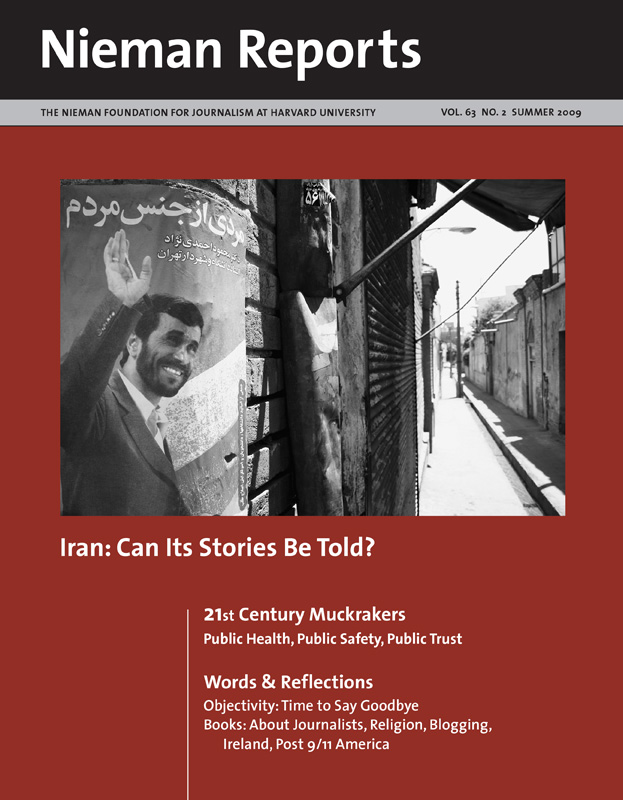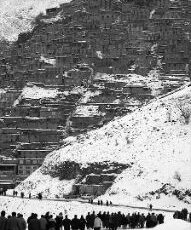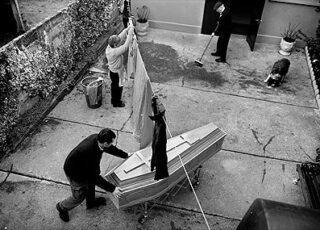ISSUE
Summer 2009

Iran: Can Its Stories Be Told?
Journalists — Iranians and Westerners — share their firsthand experiences as they write about the challenges they confront in gathering and distributing news and information about Iran and its people. Their words and images offer a rare blend of insights about journalists’ lives and work in Iran. In the fifth part of our 21st Century Muckrakers series about investigative and watchdog reporting, the focus turns to coverage of issues involving public health, safety and trust. And in Words & Reflections, essays touch on objectivity, religion, blogging, Ireland and post 9/11 America.

